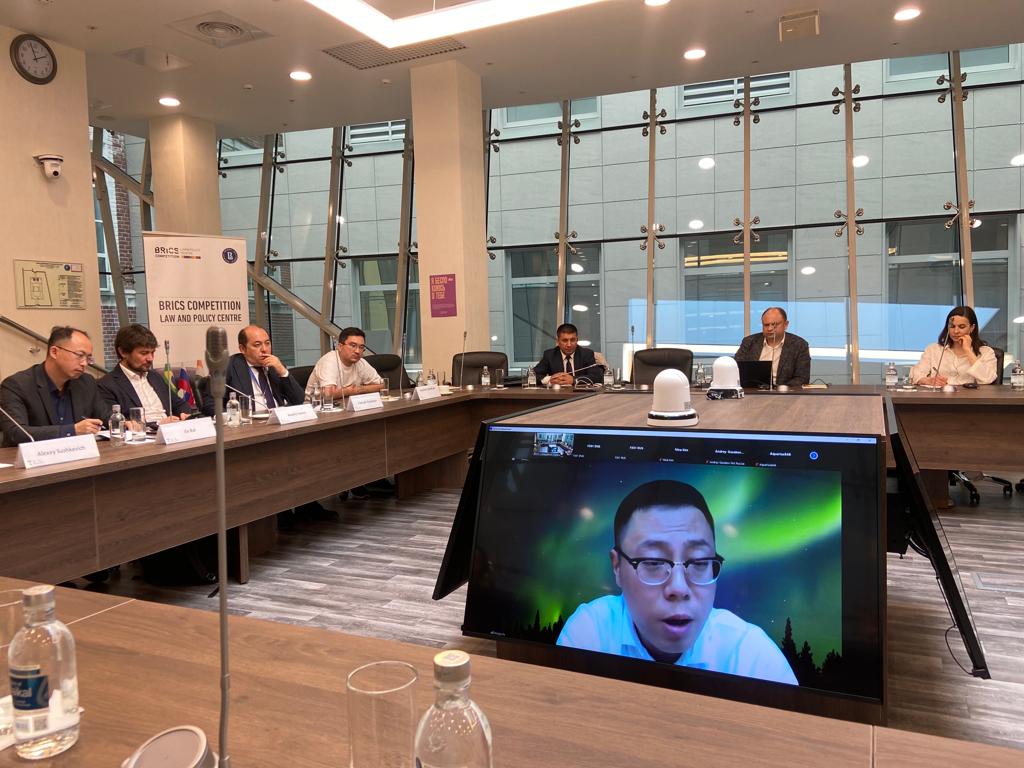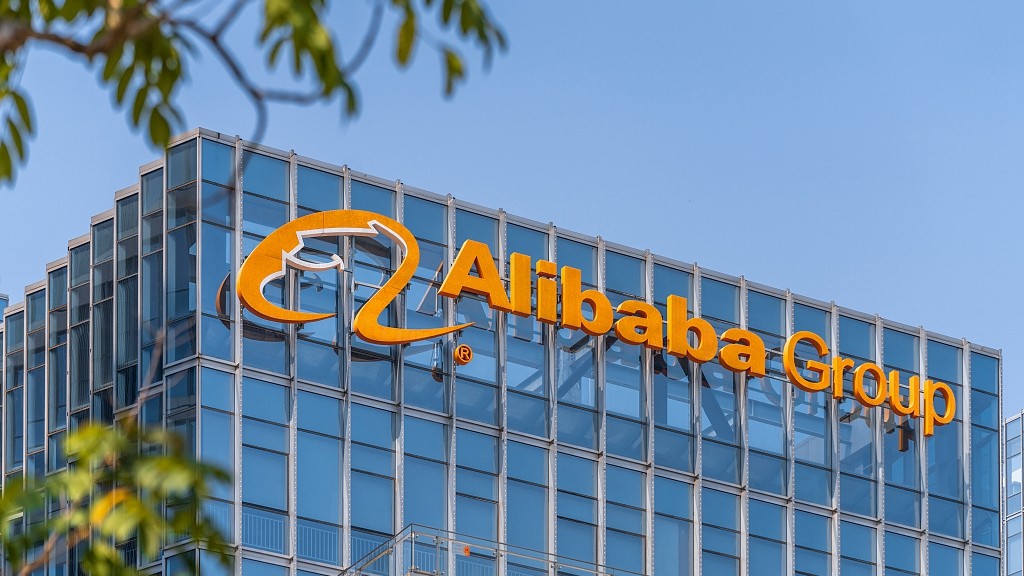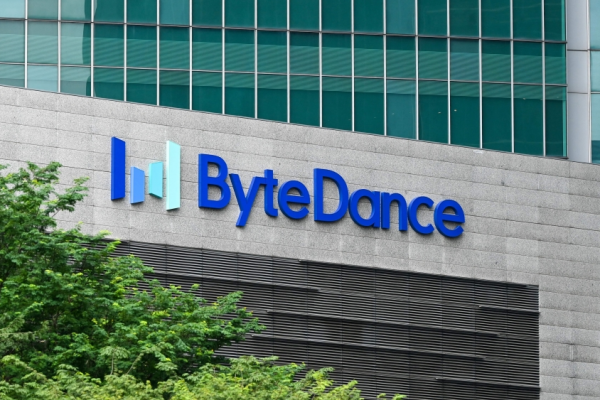On May 25, the Workshop on Algorithms Revealing by Alibaba in China was held at the National Research University Higher School of Economics as part of the II Eurasian Economic Forum. The meeting was moderated by Alexey Ivanov, Director of the International BRICS Competition Law and Policy Centre. The keynote speakers were Jia Kai, Associate Professor at the University of Electronic Sciences and Technology of China (UESTC), and Fu Hongyu, Deputy Director of Alibaba's Center of Data Economy, who joined online.
At the end of 2021, China's internet regulators required digital companies to disclose recommendation algorithms. To date, China has launched an algorithm recordation system: already more than 100 companies have submitted and published 262 different algorithms in the public domain. Jia Kai talked about this in his opening remarks.
How one of China's largest Internet companies, Alibaba, disclosed its algorithms and what information it provided, said Fu Hongyu, PhD, Deputy Director of Alibaba's Center of Data Economy, Researcher at China's Ministry of Industry and Information Technology.

Right now, algorithm registration in China is not mandatory for companies. The process of submitting information about algorithms to the regulator is ex post facto, no prior verification is required. The legislative framework for regulating algorithms includes the Rules on Algorithm Recommendation, the Rules on Deep Synthesis Technology, and the Draft Measures for Generative Artificial Intelligence (AI) Services. All of these documents suggest that an algorithm is to be submitted to recordation if it targets a broad audience or "has some impact on society."
The Chinese authorities have already developed a centralized and almost automatic electronic algorithm filing system. The Cyberspace Administration of China (CAC) has identified five use case categories of algorithms:
- Personalized Recommendation
- Ranking and Selection
- Generation and Synthesizing
- Searching and Filtering
- Scheduling and Decision-Making
Algorithm recordation data contains its basic operating principles, field and purpose of application, as well as information on the identified and identifiable risks, training data, optimization strategy and output control.
For example, if a company uses a system of personalized recommendations, it should disclose what optimization methods were used — how CTR (Click-through rate) and DAU (Daily Active Users per day) metrics are increased, how the AI algorithm machine learning went on, etc.
Among other things, in the recordation process, it is necessary to specify the method of output control. For example, indicate whether the algorithm provides for safety and absence of overtime of employees. For online ride-hailing services, the Chinese labor law requires drivers to rest for 30 minutes every 4 hours.

Each Alibaba algorithm must undergo an internal risk assessment, the results of which are reported to the regulator. The law requires Chinese companies to keep data on identified risks for three years. A crucial role in this whole process is played by the company's Impact Self-Assessment mechanism.
"If a company does not have such a mechanism, and the regulator doesn't seek to cooperate with it, the transparency of the algorithms cannot be ensured. The government does not have the resources to examine each algorithm in detail. This is a task for the companies themselves, which they have to do in full lifecycle in real time,"
said Fu Hongyu.
Many of the risks associated with the development and application of AI involve ethical issues. Alibaba's Technology Ethics Committee, which includes company experts, academic experts and users, gives feedback on how to deal with them.
It is important that platforms that disclose their algorithms are guaranteed the protection of trade secrets by regulators. Companies do not have to fear that data about their algorithms will be used against them by other authorities, competitors, or hackers.
According to Fu Hongyu, openness to society and ensuring equal access to information about the company's work for different groups of people is an important principle of Alibaba. The company publicly talks about some of the algorithms it uses and is involved in educating users and developers.
"The society is those who will benefit from the algorithm and who will be harmed if it is misused, so we need to explain to consumers what kind of algorithms we use, what personal information we collect, and how it is processed and used,"
Fu Hongyu emphasized.
During the workshop, participants were able to ask the speaker questions. Several of them were related to the control of price algorithms.
"In China, it is forbidden to use users' personal data for personalized pricing. The Cyberspace Administration monitors compliance with this requirement. As of 2021, Alibaba does not use algorithms that form prices based on personal data. However, the company may provide users with bonuses and discounts,"
the speaker replied.
Alexey Ivanov asked how algorithm recordation is organized in such a complex structure of Alibaba Group, which includes many companies, among them Taobao, Tmall, and AliExpress.
"If a company within the Alibaba Group is a separate legal entity, it registers its own algorithms. As a holding company, we can assist in data collection or negotiations with the regulator, but the final decision is always up to the particular company,"
Fu Hongyu explained.

Farrukh Karabaev, Deputy Chairman of Competition Promotion and Consumer Protection Committee of the Republic of Uzbekistan, addressed the issue of AI technology: Are there any pro-competitive requirements in the Draft Rules on Generative AI? And who will be responsible for the decisions generated by AI?
"Generative AI technologies are developing so fast that we don't know exactly how they will be used. Therefore, there are also no detailed competition requirements in the rules for AI yet. However, Alibaba has already used AI algorithms for pro-competitive purposes — to detect deceptive behavior and counterfeit goods on the platform. As for the issue of AI-generated solutions, in China we share areas of responsibility: there are certain regulatory requirements for each stage of AI development and for its use,"
said the speaker.
Aleksey Sushkevich, Director of the Antimonopoly Regulation Department of the EEC, asked whether the requirement to disclose algorithms affects the competition of Alibaba with companies that are not subject to this requirement.
The algorithm disclosure requirement applies only to big platforms, Fu Hongyu stressed:
"In general, we cannot say that this requirement puts big companies at a disadvantage. With more resources and influence, they should have a bigger responsibility to society. The more sellers and buyers on a platform, the more transparent its operations should be. The Digital Markets Act (DMA) in the EU defines such companies as gatekeepers, and there are special requirements for them as well. At Alibaba, we believe this makes the Big Tech more accountable, and we welcome the trend for a fairer competition environment.”
Nurzhan Urankhaev, Head of Department of the Agency for Protection and Development of Competition of the Republic of Kazakhstan in the Almaty City, asked how Alibaba provides discounts and bonuses to users when it is prohibited to make any price arrangements with sellers.
Generally, the bonuses are provided by the companies themselves, Fu Hongyu replied. Discounts and bonuses used to be a major weapon in competition. A few years ago, DiDi squeezed Uber out of the Chinese market as a result of a brutal price war. Now the influx of investment in Chinese Big Techs has declined because of regulatory pressure, and they don't have enough resources to pursue such policies.
"Now companies are not relying on bonuses for customers, but on quality of goods/service and lower commissions for sellers. I believe the future lies in that kind of competition, not in the competition of bonuses."
Daria Kotova, expert of the BRICS Competition Law and Policy Centre, wondered how the story of business transparency will develop and whether sanctions may eventually be imposed on companies that do not wish to disclose their algorithms.
Encouraging companies to greater transparency is more effective than fines and sanctions, the speaker noted:
"I suggest trying to incentivize the companies rather than punish them for not disclosing their algorithms. I think the prisons are full."
Armine Hakobyan, Deputy Director of the Department for Competition and Public Procurement Policy of the EEC, asked the speaker to share his opinion on which approach to regulating digital markets he considers more effective: ex-post or ex-ante.
China has adopted the "safe harbor" framework, which is closer to ex-post regulation, but right now is moving in the EU direction, toward ex-ante measures, the speaker noted.
"More stringent requirements are being imposed for big platforms, but I can't say how that will affect the market. We need to wait and see how the digital environment reacts, to understand what kind of regulatory regime we need,"
he said.
Responding to a question from Evgeny Styrin, Associate Professor at the Faculty of Social Sciences at the Higher School of Economics, on the level of competence of Chinese regulators, Fu Hongyu stressed that CAC has expanded its technological expertise through cooperation with major universities and the Chinese Academy of Sciences. However, the algorithms recordation still requires a lot of time and effort from both sides.
"We have estimated that to file one algorithm recordation, it takes about 230 hours of Alibaba expert’s work. It's not easy to study that much data and provide feedback. I think that's why CAC still hasn't provided any feedback on the merits of the recordation — they just don't have the resources to process this information."
This problem can only be solved by joint efforts, in a cooperative mode between regulators and companies, Fu Hongyu concluded.
Photo credit: BRICS Competition Centre




